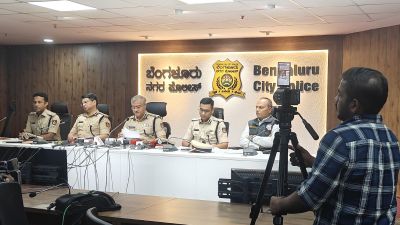Why Facebook should be worried at the reaction to its Digital India tricolour filter
Facebook offering users a chance to add a tricolour filter to their profile picture is a masterstroke in many ways
 Facebook offering users a chance to add tricolour to their profile picture is a masterstroke in many ways
Facebook offering users a chance to add tricolour to their profile picture is a masterstroke in many ways
We turned on our national pride this autumn. As our prime minister visited the biggest names of Silicon Valley, promoting Digital India and all its hopes and potentials, the IT industry responded in kind. Large gatherings, rock star appearances, and support parties that welcome the future of collaboration and economic development through information and communication technologies were all summed up by Facebook offering its users a chance to add a tricolour filter to their profile picture. It was a masterstroke in many ways — Facebook, through this gesture, pleased one of its biggest emerging markets and also presented itself as a pro-national, pro-development, global company that wants to make in India and make India digital.
Remember, the last time Facebook actually gave such an option was when the US Supreme Court legalised gay marriages in the USA, giving legitimacy and acknowledgment to decades of battles and struggles that the same-sex marriage advocates and LGBTQ rights activists have been working on. That landmark decision, which marked a triumph of human rights, was offered for universal celebration to people who might not directly benefit from this American decision but could partake of it, both as an act of solidarity and of hope. In that instance, I had defended Facebook’s choice of offering the rainbow to those who were not in the immediate fold of the decision.
However, when I examine the tricolour filter, I am a little perplexed about what to make of it. If we go by the rainbow profile and assume that the Facebook profile picture filter is a sign of digital celebration of something that is historically significant, a triumph of human will and perseverance, a step towards building inclusive societies that care for those who are discriminated against — if, in a nutshell, the profile picture filter is an attempt to memify our avatars to mark a milestone — I am not sure what exactly the tricolour filter was celebrating.
Surely, we cannot merely be celebrating the fact that our prime minister met Mark Zuckerberg. For a project that is beset with critique and an uneasy vagueness because of its lack of nuance around individual privacy, rights, infrastructure costs, etc. it is too early to start celebrating Digital India. We can be hopeful and excited by it but launching the project in itself cannot be seen as a moment of triumph. If the best thing to celebrate about the project is that heads of state are meeting heads of corporations, then we should be worried that the project has peaked too soon and everything from now on is going to be downhill.
Perhaps this confusion of what we were celebrating when we donned the sparkly tricolour on our profile pictures was also shared by others. It would explain the conspiracy theory that went viral about how Facebook was using our adoption of the filter as a yes vote for its lobbying against net neutrality through its Internet.org foundation in India.
As the news went viral, even reputed newspapers fell under the spell of the internet noise and spread it around without verifying the sources. But it was obvious to anybody who can read just a little bit of code that this was a specious claim. The presence of the name of Internet.org as a class name for a picture in that code had no capacity to generate an automatic yes vote for a campaign. It was also obvious to anybody who was digitally literate that a company as huge as Facebook, which has tried very hard to distance its market ambitions from Internet.org activities on building digital infrastructure, would never be stupid enough to have such an insidious lobbying tactic.
The anxiety that this panic attack embodies is not about how we are being manipulated through code, but the confusion over what the tricolour filter was celebrating. When there is nothing to celebrate, nothing concrete that has emerged, nothing that we can actually point to as worth commenting, the celebration through the tricolour filter is either just a cheap harvesting of action and data collection, or it is celebrating something that we the public are not able to access, but definitely seems to energise the powers-that-be.
As is obvious, I did not wear the tricolour on my profile picture on Facebook. That does not mean that I do not feel warmly towards my country, but that I do not want my patriotism to be an unquestioning symbolism that is being manipulated by the new nexus of public policies and corporate visions. And while Facebook couldn’t really care less about whether or not I changed my profile picture on their suggestion, they should be worried that one of their biggest markets has developed a new mistrust, where unverified stories that paint them as big bullies and trust-mongers are being accepted so plausibly on the social web.
It might be good for the company to recognise that their persistent lobbying against principles like individual privacy and rights to internet access through a neutral net is increasingly leading to public mistrust and resistance. That can never bode well for a company that is so invested and interested in getting to gather our most private data and relationships.
Nishant Shah is a professor of new media and the co-founder of The Centre for Internet & Society Bangalore.







